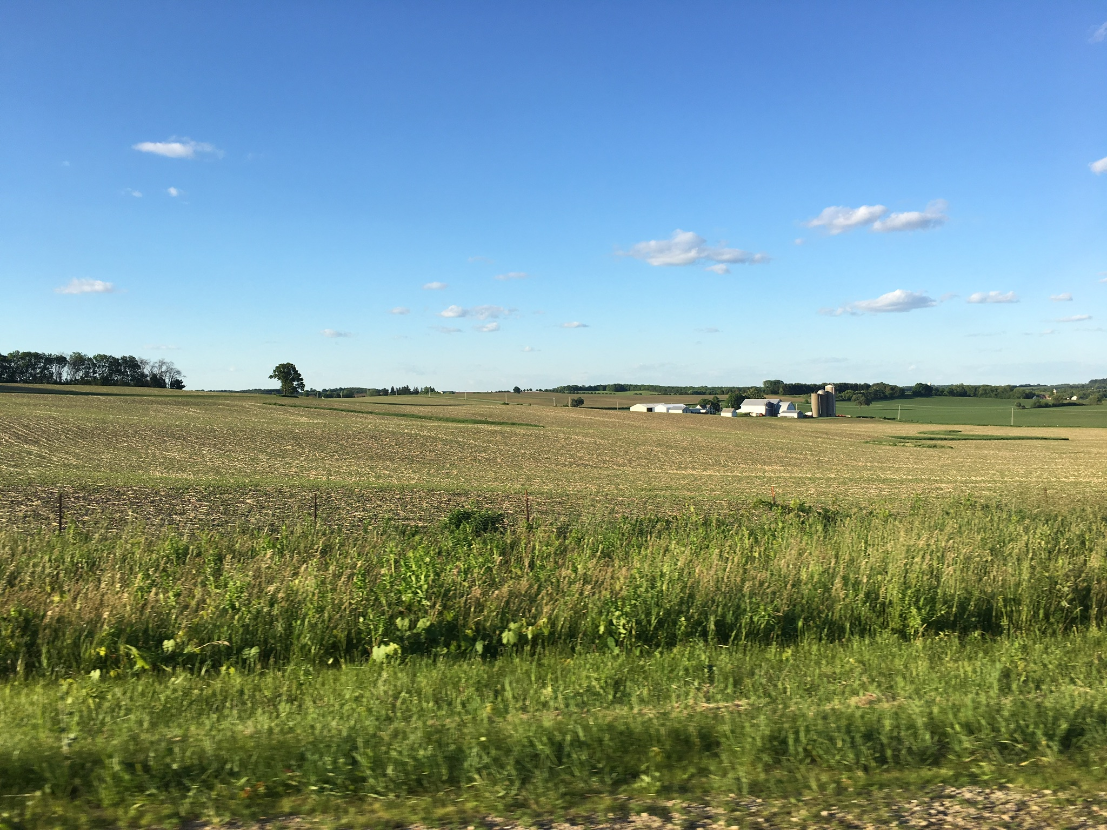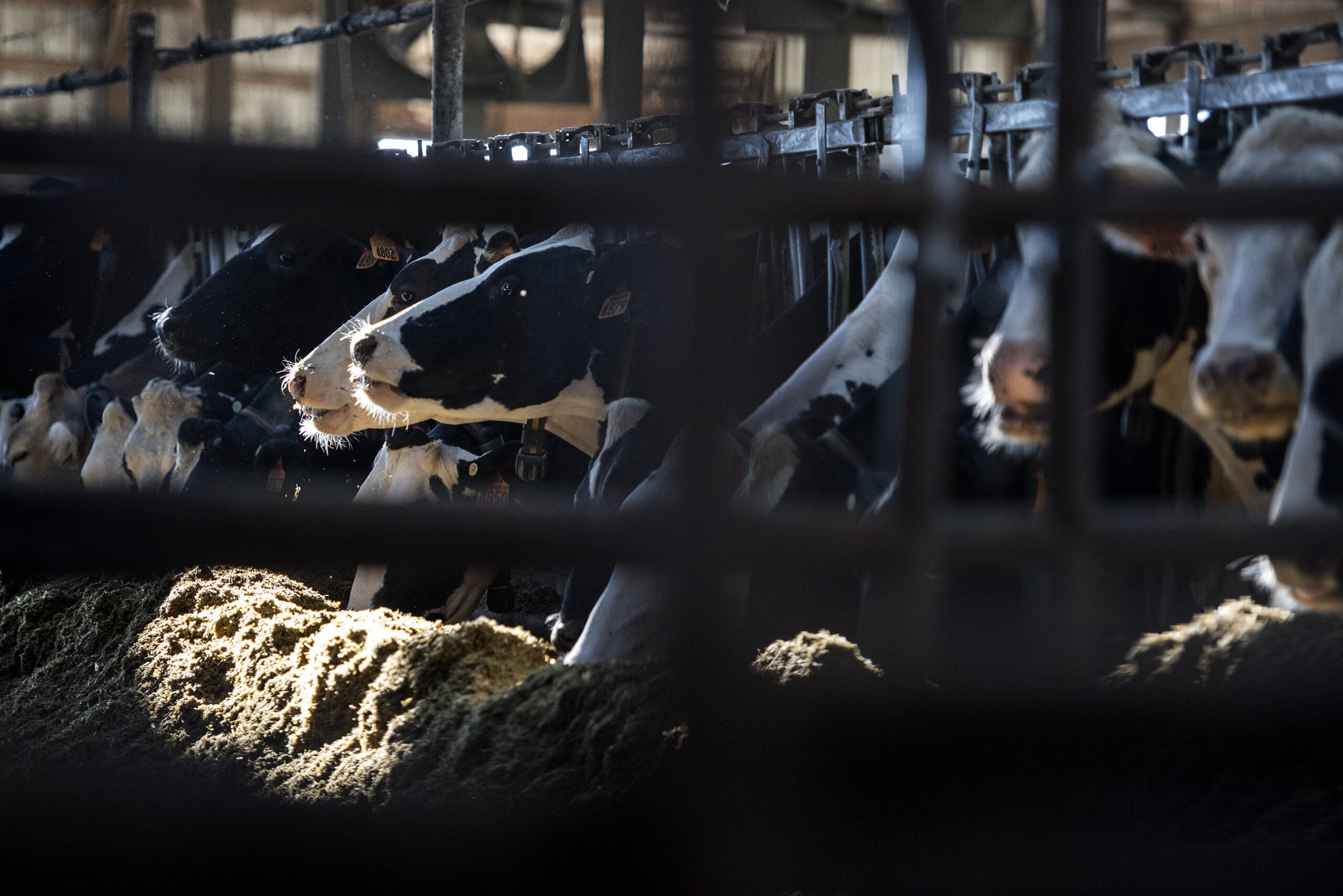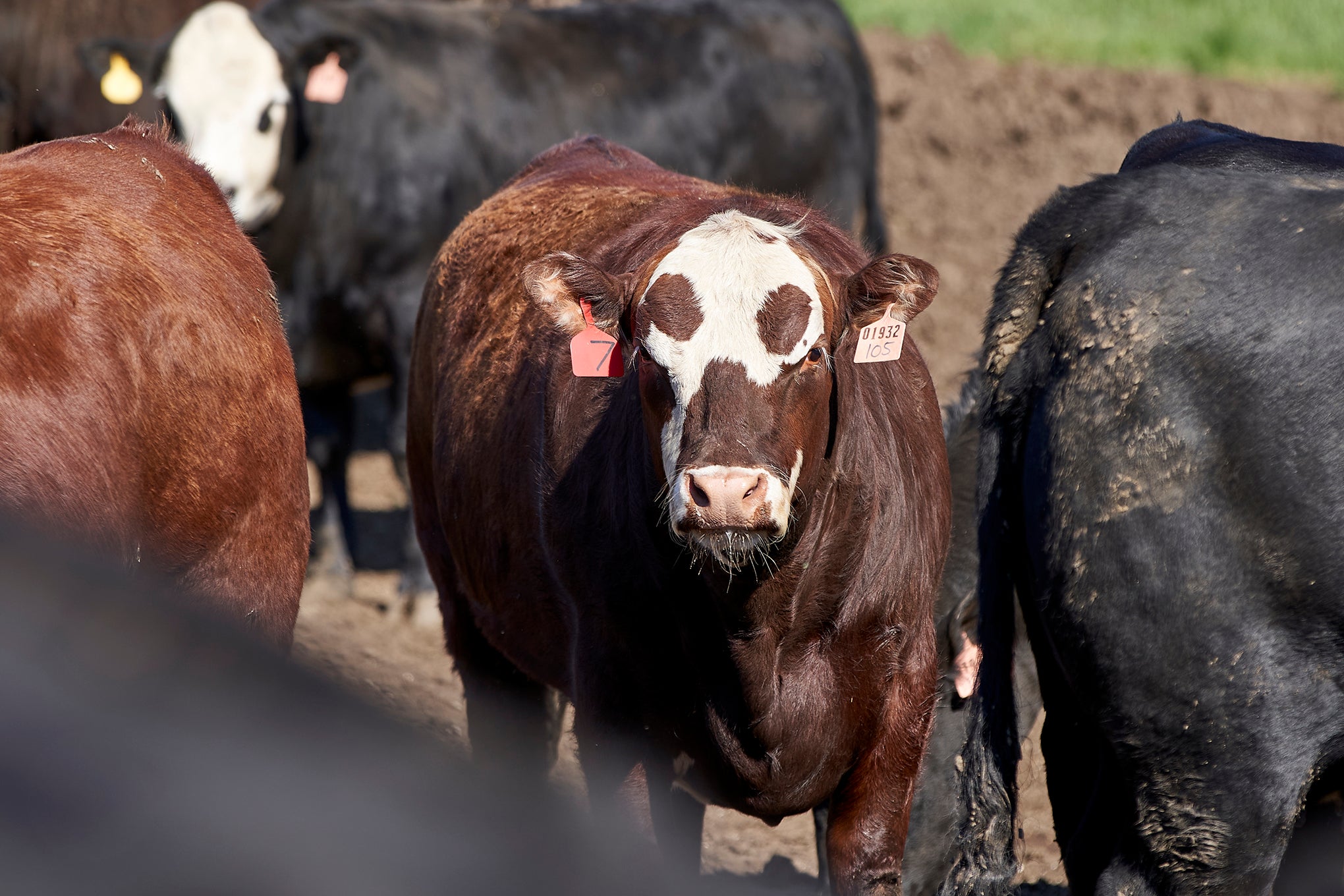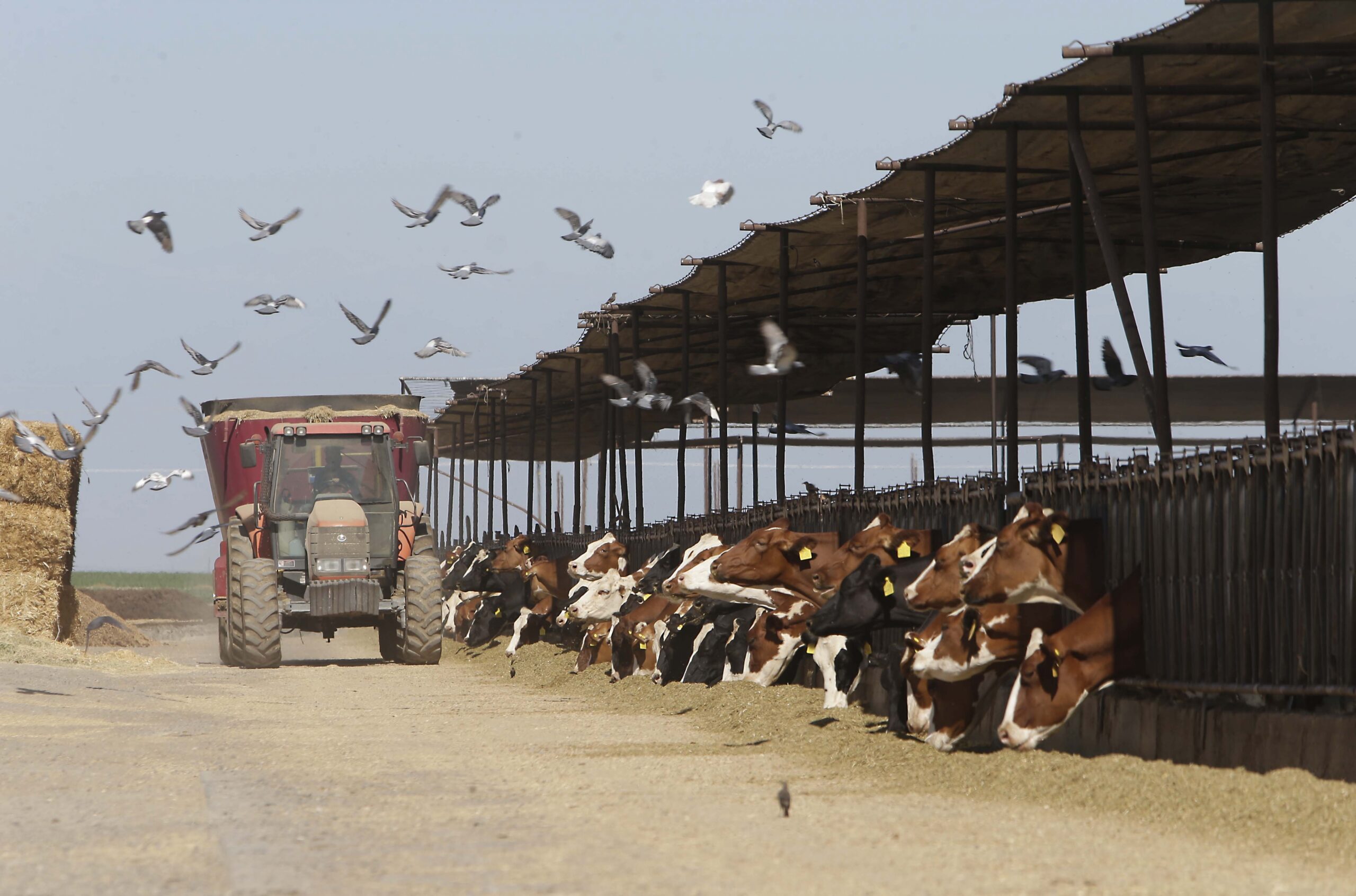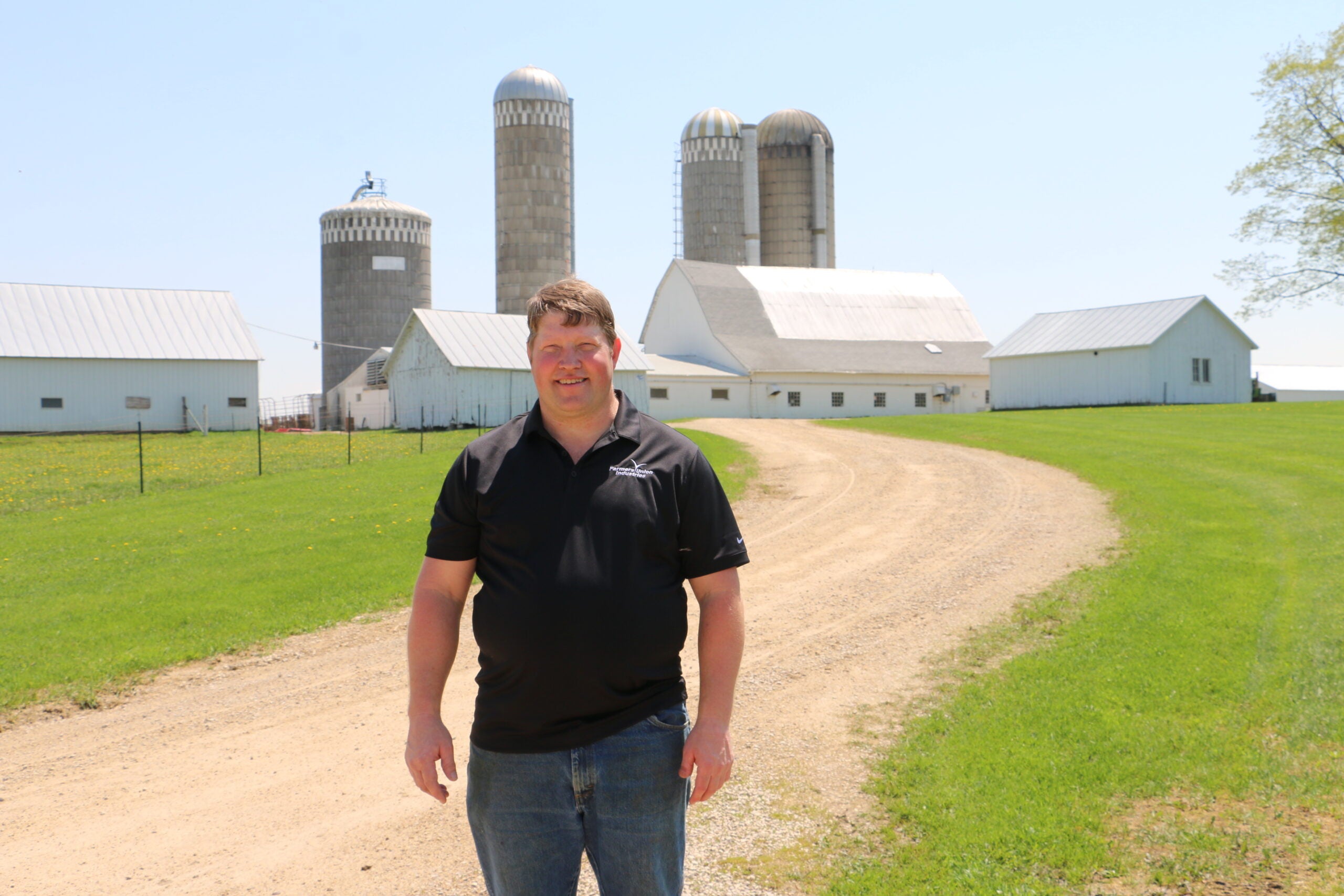As the novel coronavirus continues to spread across Wisconsin, the state’s farmers are bracing for how the pandemic will impact the agricultural industry.
Darin Von Ruden, president of the Wisconsin Farmers Union, said many farm operators are old enough to be considered part of the high-risk population for the virus. The U.S. Department of Agriculture’s 2017 census found the average age of all Wisconsin producers is 56 years old.
But Von Ruden said farm families do have the advantage of being more isolated in rural areas and less likely to be in close contact with other people.
News with a little more humanity
WPR’s “Wisconsin Today” newsletter keeps you connected to the state you love without feeling overwhelmed. No paywall. No agenda. No corporate filter.
“The number one thing that I’m hearing is just the concern of what the future is going to hold, you know, not really knowing what’s going to happen,” Von Ruden said.
Mark Stephenson, director of dairy policy analysis at the University of Wisconsin-Madison, said he doesn’t think the agriculture industry has seen the full impact of the pandemic yet.
“We know, for example, that farm milk prices are going to be taking a real nosedive,” Stephenson said. “We also expect that there are going to be some slowdowns or problems with just supply chains and things that farmers may normally be picking up on.”
Milk prices typically decline in spring as production naturally increases in more mild weather, called the “spring flush.” But Stephenson said most dairy economists are expecting a much bigger decline than normal as the pandemic causes a major slow down in international and domestic demand.
“People still have to eat, but clearly, they’re going to be eating differently than they did. About a third of dairy products have usually been sold through food service stations, restaurants and so forth. And most of those are either closed to business completely for the time being or they are at pickup only or delivery,” Stephenson said.
Widespread school closures could also hurt milk sales. Stephenson said about 8 percent of the nation’s beverage milk is sold to school systems.
Von Ruden, who owns a dairy farm near Westby, said he has heard from some dairy producers who regret not investing more in federal insurance programs like the Dairy Margin Coverage program.
“Last fall, when the sign-up period was, the futures market looked really good all the way through 2020. So, a lot of farmers didn’t buy up any coverage because they didn’t think they were going to need to. And now four months later, all of a sudden, we’re in a situation where prices are dropping and farmers wish they would have bought into that insurance program a little bit more than they did,” Von Ruden said.
Von Ruden said he’s also heard of milk cooperatives preparing to control the milk supply if prices get bad. He said some cooperatives are even warning producers that they could have to dump milk on the farm if facilities become to full.
“At some point in time, as everything gets full of cheese and fluid milk, then there just isn’t a market for it. So why invest in the gas to get it into the processing facilities when you can just take it off or take care of it at the farm level,” Von Ruden said.
Stephenson said transportation and processing of milk could also become a problem if too much of the workforce contracts the virus.
“If we have to quarantine the workers in a plant, does the plant shut down? And what happens to the milk that was going into that plant for the next couple of weeks? Do we have capacity in other plants to be able to pick that up for a period of time and process it?,” Stephenson said. “This is a very complicated circumstance that we’re in.”
He said dairy farms are facing similar workforce questions, especially as employees with children deal with statewide school closures.
Democratic U.S. Rep. Ron Kind, joined a group of bipartisan lawmakers calling on the U.S. Department of State to resume processing H-2A visas, used by temporary or seasonal agricultural workers. The department announced earlier this week it was suspending visa processing due to concerns about the coronavirus.
Another direct impact of the pandemic on farms could be the availability of N-95 respirators, the face masks used by hospital workers and other industries that are currently in short supply across the U.S. /p>
Stephenson said farmers use the masks when dealing with stored grain, especially after crops were harvested in poor weather conditions like in 2019.
“There may be more dust or possibly molds in some of those grains. And if they’re in a bin or trying to move some of these grains out and in an environment where a lot of that dust and mold are present, then farmers have learned for many years that we try to use personal protective equipment like those masks,” Stephenson said.
But Stephenson said he’s confident the supply of masks will catch up with the demand, so farmers should not try to start buying up masks now.
“In fact, if you actually had a big supply of (masks), the health care system would probably be happy to have a few of those made available in the short term,” Stephenson said.
Wisconsin Public Radio, © Copyright 2025, Board of Regents of the University of Wisconsin System and Wisconsin Educational Communications Board.

